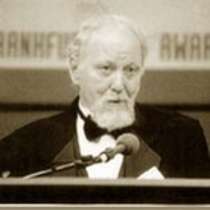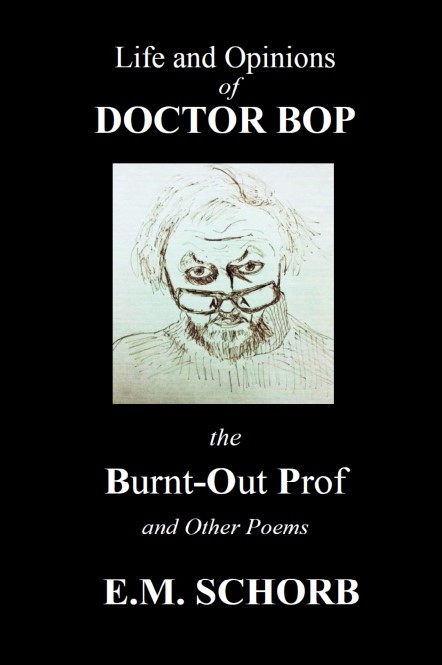Sioux must have mounts. Sun-Dreamer, greatest of all shaman, advised, Go to the horse-rich Crow. Up from Mexico, stolen by Comanche, passed north to Utes, Shoshoni, the best mounts came, finally, to the Crow. So a hundred Hunkpapa went on the warpath, the Sioux seeking Crow in Yellowstone summer, lariats ready, led by Sitting Bull, finding and making off with many a Crow pony. From French frontiersmen—coup, to touch or to strike the enemy. Let aftercomers slay him: you are first in honor because first in the fray. Slow, who, at fourteen, had no other name—he was considered deliberate, thoughtful, not slow—must join the hunting party— but out on the trail, so his mother could not try to stop him, would not hold him back and wail as if he were riding to his death. Deliberately, Slow must be fast, first, must make coup Pursued! so that along the skyline the rays of rising sun were made of long wide rare red feathers, each on a spear. Crow galloped—Sioux galloped. Now Sioux must be intrepid— must hold the herd! Winter Rides, the Crow Chief, sent Sitting Bull a challenge to a duel on the range, just chief and chief in single combat. They knelt, aimed, and fired. Sioux and Crow prayed. Both sides waited for the white cloud to clear. Winter Rides was dead, or die now and be done, for “It is better to lie naked than to rot on a high scaffold,” an old man who has lived safely, afraid to die, now naught but bent bone and thin loose flesh for the sun to cook and the crows to eat. A name must be earned. Let the braves mock his war lust—who cared?—but he would have greatness, and he must begin. He will not allow anyone in the world to stop him, not mother nor sisters nor mocking braves nor even father. And so he caught Sitting Bull’s round shield pierced, the sole of his foot penetrated and badly mangled, and his legendary limp acquired for American history. And now a grand chief, famous, mighty, un- defeated, with his every step, he reminds all who see how he can spread over the prairie the Sioux’s high might and exclusive dominion, for there were fewer and fewer bison. These hunting grounds, and joined his father’s band, saying, of himself and his pony, “We are brave and strong, and are going too.” On his father’s face he saw pride, and “A brave is a brave when he proves it,” and Slow had already killed his first buffalo; had touched a dead foe’s face. He gave Slow his own coup-stick, then prayed to the Great Bull Buffalo God to keep Slow safe in the band— for who would forgive him Slow’s death?—then willed that Slow be first to send an enemy to his grave. which had once belonged to the Crows, Hidastas, Rees, Shoshonis, and poor, dying Mandans, once many and grand, could not keep such numbers. The Treaty of Fort Laram -ie, which held the tribes to peace, Sitting Bull declared, must be broken or his people starve, and by 1864, all the chiefs who had signed the Treaty of Fort Laramie with the Sioux nation were dead, their tribes driven off and hiding, Then it was hard riding, to where the bubbling, blood-red water of the Missouri river turned brown, and there were the Iroquois, taking from the giver, brothers to vultures, stealing their bison—meat, hoof, and hide—from the hungry Hunkpapa, who would ambush the Iroquois but for the gold-painted boy, crying, “I am Slow, bravest of the Hunkpapa,” who charged ahead of his band to make coup on an isolated Iroquois hunter, alarming the others. afraid to hunt buffalo at all, Sitting Bull having triumphed. “Chief Sitting Bull fed the nation,” Sioux said, “on thirty-five thousand bison a year.” “Grandfather, my children are hungry,” prayed Sitting Bull, when taking aim at a great bull buffalo, “so I must kill you. It is what you were made for.” Then he offered meat to Wakan Tanka, Double-of-the-Sun, who had given bison their meat. Now the surprised Iroquois hunters turned in retreat—all but one brave, who stopped, turned about, and drew his bowstring. But coup! Slow struck him with a shout, and fame was Slow’s, as other Hunkpapa slew the unfortunate brave. Sitting Bull, Slow’s great father, felt his pride overfull as the others circled his son Slow with raised weapons in salute of his courage in battle. He must give some away. He, Returns-Again, now Sitting Bull, awarded Slow his honored name.
Biography
E. M. Schorb attended New York University, where he fell in with a group of actors and became a professional actor. During this time, he attended several top-ranking drama schools, which led to industrial films and eventually into sales and business. He has remained in business on and off ever since, but started writing poetry when he was a teenager and has never stopped. His collection, Time and Fevers, was a 2007 recipient of an Eric Hoffer Award for Excellence in Independent Publishing and also won the “Writer’s Digest” Award for Self-Published Books in Poetry. An earlier collection, Murderer’s Day, was awarded the Verna Emery Poetry Prize and published by Purdue University Press. Other collections include Reflections in a Doubtful I, The Ideologues, The Journey, Manhattan Spleen: Prose Poems, 50 Poems, and The Poor Boy and Other Poems.
Schorb’s work has appeared widely in such journals as The Yale Review, The Southern Review, The Virginia Quarterly Review, The Chicago Review, The Sewanee Review, The American Scholar, and The Hudson Review.
At the Frankfurt Book Fair in 2000, his novel, Paradise Square, was the winner of the Grand Prize for fiction from the International eBook Award Foundation, and later, A Portable Chaos won the Eric Hoffer Award for Fiction in 2004.
Schorb has received fellowships from the Provincetown Fine Arts Work Center and the North Carolina Arts Council; grants from the Ludwig Vogelstein Foundation, the Carnegie Fund, Robert Rauschenberg & Change, Inc. (for drawings), and The Dramatists Guild, among others. He is a member of the Academy of American Poets, and the Poetry Society of America.
PRIZE-WINNING BOOKS
BY E.M. SCHORB
Books available at Amazon.com
_______________________________________
Dates and Dreams, Writer’s Digest International Self-
Published Book Award for Poetry, First Prize
Paradise Square, International eBook Award
Foundation, Grand Prize, Fiction, Frankfurt Book Fair
A Portable Chaos, The Eric Hoffer Award for Fiction,
First Prize
Murderer’s Day, Verna Emery Poetry Prize, Purdue
University Press
Time and Fevers, The Eric Hoffer Award for Poetry
and Writer’s Digest International Self-Published Book
Award for Poetry, each First Prize
and recent finalist in the International Book Awards 2020 again
Muddling Through, a Gallimaufry of Light Verse, Prose Poems, Short Plays, Songs, and Cartoons
Hill House New York 978-0-578-60136-6
Robin Ouzman Hislop is Editor of Poetry Life and Times at Artvilla.com ; his publications include
All the Babble of the Souk , Cartoon Molecules, Next Arrivals and Moon Selected Audio Textual Poems, collected poems, as well as translation of Guadalupe Grande´s La llave de niebla, as Key of Mist and the recently published Tesserae , a translation of Carmen Crespo´s Teselas.
You may visit Aquillrelle.com/Author Robin Ouzman Hislop about author. See Robin performing his work Performance (University of Leeds)

